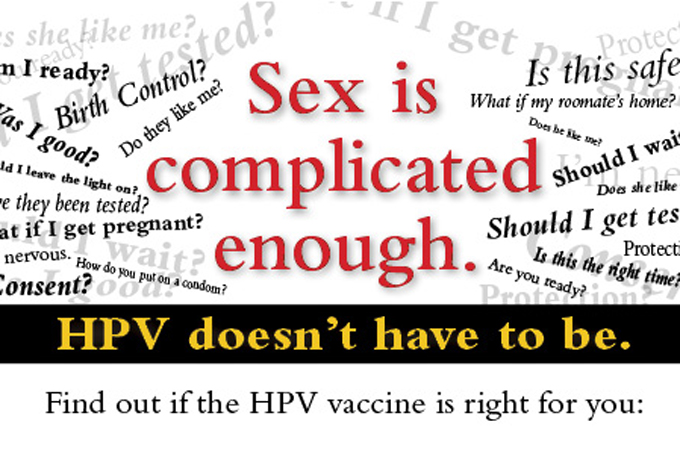
Each year in the U.S., approximately 12,000 women will be diagnosed with cervical cancer. More than 4,000 women will die from it. Human papillomavirus (HPV) is responsible for almost all cervical cancers. The virus can also cause cancer of the anus, penis, vagina and throat. Overall, 20 million people in the U.S. have HPV. HPV vaccination may be particularly important for African American and Latino women, as they are hit the hardest. Two Black women die for each White woman who dies from cervical cancer.
For years, the main way to prevent cervical cancer has been to find and treat it early. The best way to detect it is with a Pap smear, a screening test that catches changes in the cervix that may lead to cancer. In 2006, the first vaccine against HPV became available. By preventing HPV infection, the vaccine decreases the chance that a woman will ever develop precancerous or cancerous cervical changes. Even though the vaccine is available, not enough adolescents are getting vaccinated.
The vaccine offers a safe and easy way to prevent cervical cancer and other diseases caused by HPV, such as genital warts and other genital cancers. The Centers for Disease Control and Prevention (CDC) recommends that all girls and boys ages 11-12 be vaccinated to prevent HPV. For older adolescents and young adults who have not been vaccinated, catch-up vaccination is recommended through age 26 for women and 21 for men. For complete protection, it is necessary to get three shots. The second shot comes one to two months after the first. The third shot is given six months after the first one. These vaccines can prevent up to two out of three cervical cancers.
A recent University of Pittsburgh study, led by Sonya Borrero, MD, assistant professor of medicine, used data from the National Survey of Family Growth. The study showed that African American women ages 15 to 24 were much less likely than White women to receive a full course of the HPV vaccine. Researchers wondered whether this finding could be explained by decreased access to health care among African Americans. However, even when taking socioeconomic factors into account, African Americans still have about half the odds of receiving the HPV vaccine compared with Whites. This finding suggests that decreased access to health care resources is not responsible for the lower HPV vaccination rates in African American women.
Why African Americans are less likely than Whites to be vaccinated against HPV is unclear. Both provider- and patient-level factors may contribute to the difference. Studies have suggested that providers are less likely to recommend the HPV vaccine to African American patients than to patients in other racial or ethnic groups. Other studies have suggested that African Americans may be reluctant to get vaccinated or have their daughters vaccinated against HPV.
Patricia Documét, MD, DrPH, assistant professor of behavioral and community health sciences at Pitt’s Graduate School of Public Health, did a study of HPV in Allegheny County. In the study, fewer than half of Latinas knew the vaccine existed, and only eight out of 100 Latinas had received it. The research showed another problem: African Americans and Latinas who get the first shot of the vaccine stop there. They often do not complete the three shots. Because of that, they lack the best protection available.
The HPV vaccine is safe and effective when the correct number of doses is received. It is also underused, particularly in the African American community. All women and girls at risk for HPV infection, and their parents, should take matters into their own hands and ask their doctor about HPV vaccination. With the introduction of the Affordable Care Act, all people younger than 18 can get the three shots without any payments. This is true if they have private or public insurance and even if they are uninsured. Uninsured children can get the vaccine through the CDC’s Vaccines for Children program. For more information, you can call 1-800-CDC-INFO (1-800-232-4636).
Your comments are welcome.
Follow @NewPghCourier on Twitter https://twitter.com/NewPghCourier
Like us at https://www.facebook.com/pages/New-Pittsburgh-Courier/143866755628836?ref=hl
Download our mobile app at https://www.appshopper.com/news/new-pittsburgh-courier